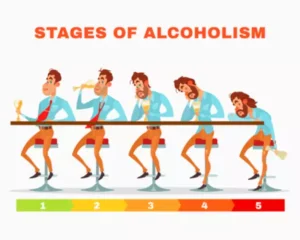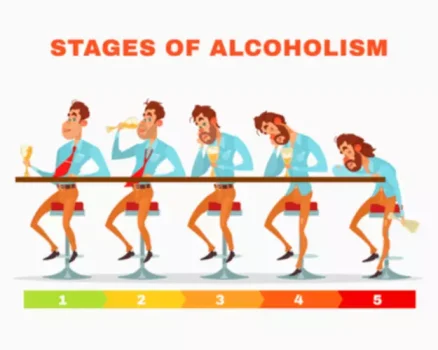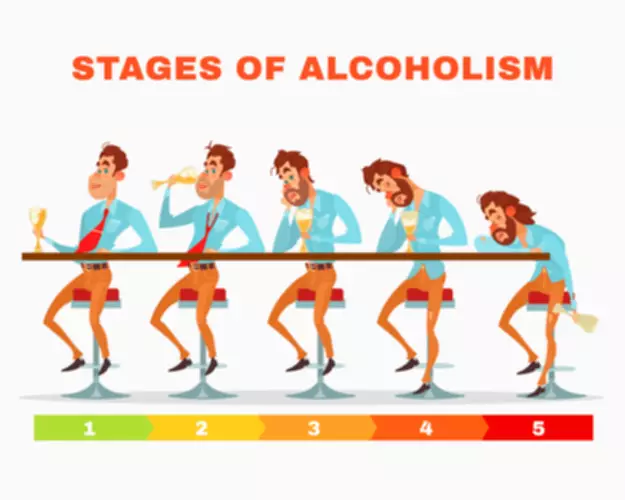
But in her experience, “most people are open to doing something that doesn’t revolve around alcohol. They just don’t want to organize it because it takes effort.” Having more time and energy might motivate you to continue abstaining from alcohol. Coffee shops, movie theaters, museums, libraries, and fast-food restaurants are just a few places that aren’t Twelve-step program likely to serve alcoholic beverages.
Gateway Foundation Hosts its Annual Connecting for Recovery Luncheon
- Download my pep talk for a dose of inspiration to keep you on track tonight.
- If you’re in early recovery, you’ll want to stay away from any situation where alcohol or drugs are involved for some time.
- Everyone has their own choice to make, and no explanation is needed.
You may need to shift your social circle to include people who don’t drink. If you’re surrounded by people who make alcohol a big part of their lives, it can feel like everyone drinks. Recovering from alcoholism can create special challenges, since alcohol is a common feature at social gatherings. Learning how to turn down a drink can take some practice, but there are a number of strategies you can use to make sober socializing a bit easier.
Always Keep a Beverage in Your Hand

Sometimes you’ll even get a situation where, say, someone who’s decided they only want to get buzzed that night will nag their friend who isn’t drinking at all. However, at the same time the buzzed group member resents being pressured to do shots from his buddies who like to get completely hammered four times a week. Unlike traditional cocktails made that use a spirit as a base, most nonalcoholic drinks are water-based or contain a high quantity of water through ingredients like fruit juices or teas.
Featured Articles
Or maybe everything has changed and that’s what they want to talk to you about. If it looks like your friends might be venturing into the land of the drunk and ridiculous, that’s your cue to head home. Even if you’ve had a previously successful outing with your bestie ordering only ginger ale with lime, you’re playing with fire every time you go. Politely decline invitations to activities you are not 100% confident you can handle sober. And then they’re going to make a conscious effort not to be bad friends. People who are supportive and healthy for you to be around will apologize.
- In these cases, even just a few minutes of discussing something else is likely to be enough to make the person forget about your sobriety.
- A common excuse people give for not drinking when they don’t want to share the details of their sobriety is that they’re taking medications that can’t be mixed with alcohol.
- You won’t get totally wasted, but you’ll avoid the unwanted nagging that would come from insisting on not having a single drop.
- The biggest being, “I just don’t like the taste.” This immediately brands you as a naive drinking newbie.
Related Articles

Asking questions is a simple way to break the ice if you don’t know many of the other guests at the event. For example, you could ask how someone knows the party host or what they think of https://ecosoberhouse.com/ the song that is playing. Compliments also work well, such as saying you love someone’s shirt and asking where they purchased it.
Leave a Reply Cancel reply

Or if you find you have no interest in being “fun” in the way drinkers usually define the word, then that’s a sign you may be better off avoiding that crowd altogether. That way you have something in your hand — club soda with lime, nonalcoholic beer — and won’t invite questions about whether you want a drink. At Burning Tree, you will find knowledgeable and compassionate professionals that structure treatment to fit individual needs, including the identification of co-occurring disorders. Through accountability and commitment to the 12 steps, each client will develop the tools to create a sober lifestyle and find lasting recovery. We specialize in the treatment of chronic relapsers and believe with the right support you can experience true and permanent healing.

Engage in Meaningful Conversations
You can change the subject by saying you need to use how to not drink alcohol when everyone else is the restroom, make a call, or have spotted a friend with whom you need to check in. If you know the person well, asking about a common interest or a mutual acquaintance is another good way to avoid talking about why you’re not drinking. Having a supportive friend attend the party with you is a good way to protect your sobriety if you’re worried about how to refuse a drink on your own. This person should be someone who understands your substance abuse issues, is willing to stay close to you throughout the evening, and will leave with you if the situation gets out of control.







Comment face book